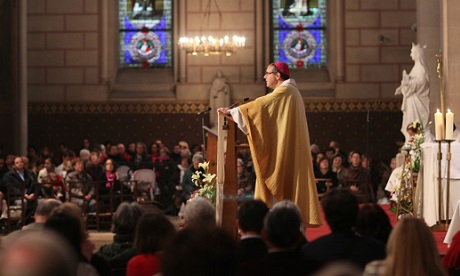Better homilies. Catholics all over the world are begging for them.
A leading Catholic theologian says the need is clear. It’s expressed in a strong “lament” emerging from the “listening phase” of the Church’s global synodal process.
Professor Anna Rowlands from Durham University says a strong, universal theme emerging from the listening phase was concern about the quality of sermons.
“The quality of homilies is a major, major universal feedback across the Church – people lamenting, either sermons that are just too hurriedly prepared or sermons that are too abstract and intellectual, or sermons that lack any kind of real meat and content to them.
“So there’s a kind of lament from across the world that we would like better homilies that genuinely feed us spiritually. Well that doesn’t require a policy change in Rome to make that happen.”
Rowlands has been seconded to the Vatican for two years to help with the Synod.
She’ll be working with both the General Secretariat of the Synod and the Dicastery for Integral Human Development.
Her role will focus on the synod process for the Vatican and Catholic social teaching for the Dicastery.
It’s “all hands to the pump” after the global grass-roots listening process and, in the last few weeks, the continental phase meetings, she says.
“Now we are going to pivot and turn into the next stage of the synod which is the discernment phase, where it is our task to reflect together on what the global Church has said, what the priorities should be for reflection.”
Rowlands says the process is “advisory” to the Pope.
She is one of the few people to have read every document submitted to the synod office from the worldwide church as a result of the listening phase.
Besides the need for better homilies, several common themes emerged from these documents.
Issues such as better governance, more transparency, the response to the abuse crisis and recognising the dignity of the baptised for women were themes that came up, although with different emphases, in different parts of the world.
New Zealand’s contribution exemplified
Rowlands says in some areas of the world, such as New Zealand, there had already been change in response to the listening phase
Local churches have realised lay participation could be increased in areas such as renewal and outreach, without the need for discernment at the universal Church level.
“Lots of things were things that could be acted on without needing major policy change from Rome,” Rowlands says.
Better formation for priests and lifelong formation for the laity are among them.
The synod process is leading up to two meetings in Rome in October 2023 and October 2024.
Source
